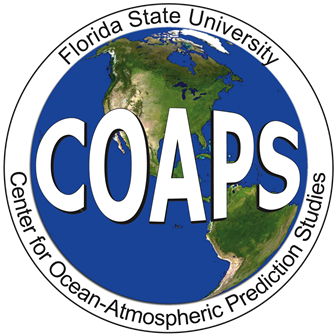
The natural world explained in one-minute segments by experts from FSU!
Environmental experts from the Florida State University provide information on a range of topics, including sea-level rise, greenhouse gas emissions, renewable energy, green technologies, pollution, hurricanes, ocean circulation, El Niño and many more. This program aired weekly on 88.9 WFSU-FM (Tallahassee, Florida) from May 2011 through April 2012. Production was co-sponsored by The Florida State University College of Arts and Sciences; The Florida State University Department of Earth, Ocean and Atmospheric Science; and the Florida Climate Institute.
- Wind power: what's in it for Florida?
By Dr. Mark Powell, Atmospheric Scientist stationed at the Florida State University - How do climate variations affect Florida's manatees?
By Dr. Lydia Stefanova, Meteorologist at the Florida State University - What is a LEED home?
By Dr. Mark Powell, Atmospheric Scientist stationed at the Florida State University - Why is the air temperature so varied across town?
By Paul Rusher, Associate Professor of Meteorology at the Florida State University - What is a biofuel?
By Vladislav Lobodin, Researcher at the Future Fuel Institute - What can I do to improve my personal sustainability footprint at school, work, and home?
By Elizabeth Swiman, Director of Campus Sustainability at the Florida State University - Where does Florida get its drinking water?
By Linda Jamison, Researcher at the Florida State University - What is the potential sea-level rise scenario for the next century, and how will it affect Florida?
By Dr. Joseph Donoghue, Associate Professor of Geology at the Florida State University - Why are pine trees not always a good thing locally?
By Bruce Means, Courtesy Professor of Biology at the Florida State University - What are greenhouse gases, and how do they warm our planet?
By Robert Ellingson, Professor of Meteorology at the Florida State University - Can tsunamis occur in the Atlantic Ocean, and what are the risks to the eastern United States?
By James Tull, Professor of Geology at the Florida State University - What causes sea level to rise?
By Bill Dewar, Professor of Oceanography at the Florida State University - What is the long-term impact of the BP oil spill?
By Ian MacDonald, Professor of Oceanography at the Florida State University - What is the butterfly effect on weather?
By Jon Ahlquist, Associate Professor of Meteorology at the Florida State University - Why do we get so much rain in the "Sunshine State"?
By Melissa Griffin, Assistant State Climatologist at the Florida State University - What is lightning?
By Dr. Henry Fuelberg, Professor of Meteorology at the Florida State University - How does ocean circulation affect Earth's climate?
By Dr. Eric Chassignet, FCI Co-Director and Director of the Center for Ocean-Atmospheric Prediction Studies - Why do ocean wave crests seem to be almost parallel to the coast in very shallow water, yet they have more of an angle to the coast as one goes into deeper water offshore?
By Todd Walton, Director of the Beaches and Shores Research Center at the Florida State University - What is the difference between weather and climate, and climate change and global warming?
By David Zierden, State Climatologist at the Florida State University - Can energy be harnessed from ocean currents?
By Dr. Alexandra Bozec, Oceanographer at the Florida State University - What can we learn about Earth's climate from space?
By Dr. Mark Bourassa, Associate Professor of Meteorology at the Florida State University - What does a forecast of 20% chance of rain mean?
By Dr. Vasu Misra, Assistant Professor of Meteorology at the Florida State University - Can high magnetic fields affect the weather?
By Dr. Gregory Boebinger, Professor of Physics and Director of the National High Magnetic Field Laboratory - What is El Niño and how does it affect the Big Bend region?
By Dr. Allan Clarke, Professor of Oceanography at the Florida State University - Performance based septic systems are required by code for new constructions in some counties and are now considered for others. What are these systems and do they really reduce nitrogen levels in our groundwater?
By Dr. Jeff Chanton, Professor of Oceanography at the Florida State University - Why don't hurricanes form over land and why do they tend to die when they make landfall?
By Dr. James O'Brien, Professor Emeritus of Meteorology and Oceanography at the Florida State University
The Environmental Minute was sponsored by the FSU College of Arts and Sciences, the FSU Department of Earth, Ocean and Atmospheric Science, and the Florida Climate Institute. FSU Center for Ocean-Atmospheric Prediction Studies' Professor Vasu Misra lead the development of this program.

